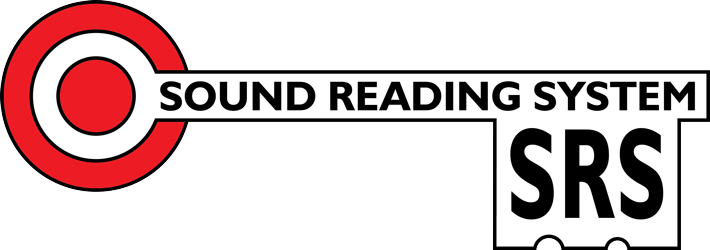Teaching in Simple Logical Steps
Developed for teachers and parents to enable beginners and struggling readers to unlock the English spelling code, in simple logical steps that promote understanding.
Case Study 1
Six months of SRS teaching to a 6 year old in Y2 – view/download Case Study 1.
Case Study 2
Kibblesworth Primary School
Kibblesworth Primary School, a small, rural school serving a community with high levels of deprivation in Gateshead embarked on a pilot project along with colleagues in five other schools in Gateshead to evaluate the use of SRS in raising standards of reading.
Pupils were taught using SRS for three months and the average increase in reading age was six months and the average increase in comprehension age was ten months. More importantly we were delighted that all the pupils taking part attained the national average in their reading SATs.
Encouraged by our successes we asked our educational psychologist to evaluate SRS as a whole class approach. She concluded, ‘The comparison between pre and post intervention assessments indicates that the use of SRS can improve word reading accuracy, reading comprehension and spelling skills. The amount of progress, in all cases was at least equal to or greater than the period of time that had elapsed between assessments. Some pupils progressed at three times the elapsed time in some areas. The students’ comments about reading were also very positive, post-intervention. They all reported that they had enjoyed and benefited from SRS.’
By using SRS our school has been judged ‘outstanding’ by Ofsted and for the last two years 100% of our pupils have attained the national average or better in the end of key stage reading SATs.
Case Study 3
Thames Valley Offender Learning and Skills Service Case Study
A three month impact study to evaluate the effectiveness of using the SRS programme with learners in Thames Valley Offender Learning and Skills Service who have low literacy levels. The following report summaries our findings.
Pilot Roll-out
The Pilot rolled out in three offices, Milton Keynes, Oxford and Slough in late March and concluded in mid-July. A total of thirty offenders participated in the programme, although only fifteen received both pre and post WRAT tests.
Each offender participated in a one hour, one-to-one, tutoring session. These sessions adhered closely to the SRS standard format, which comprised of activities to reinforce:
• Sound to print correspondence,
• Segmenting and blending sounds,
• Identifying, sorting and categorising common spelling combinations.
Learner Biographical Information
All our thirty learners scored E2 or below on the Basic Skills Literacy Assessment. While their chronological age ranged from 19-42, their WRAT tests indicate a reading range between 6 years and 11 years. Their spelling age range was between 5 years and 8 years. While some of the learners could “get by” in their reading, they clearly lacked the ability to spell and write competently. Participants clearly acknowledged that their lack of literacy skills severely hampered their ability to secure and maintain employment.
Over half our participants had attended a special school and the majority of our learners had left school early—either voluntarily or through compulsory exclusion. Several had finished school in a pupil referral unit. Several had received special needs statements while at school or had dyslexia reports from local colleges. Several has been told that they were likely to have been dyslexic, but had not received any learning support. Only one of our learners had any formal nationally recognised qualifications.
Findings
In terms of actual gains in reading and spelling, we can only use the data on the fifteen who completed the pre- and post- WRAT tests. The data indicates that on average there was a reading gain of two years and two months and an average spelling gain of three years six months. This was accomplished on an average of fourteen sessions over a three to nine month period.
From these finding we can conclude that, in every case, participation in SRS has raised the reading and spelling ages of every participant; regardless of their motivation levels and previous learning experience or learning difficulties. And it has done so without additional learning support.
Several learners, who might otherwise have not have achieved, progressed into work, training or other educational opportunities, obtained accreditations and improved their self-esteem. Participation in SRS has also had a positive influence in their family life.
